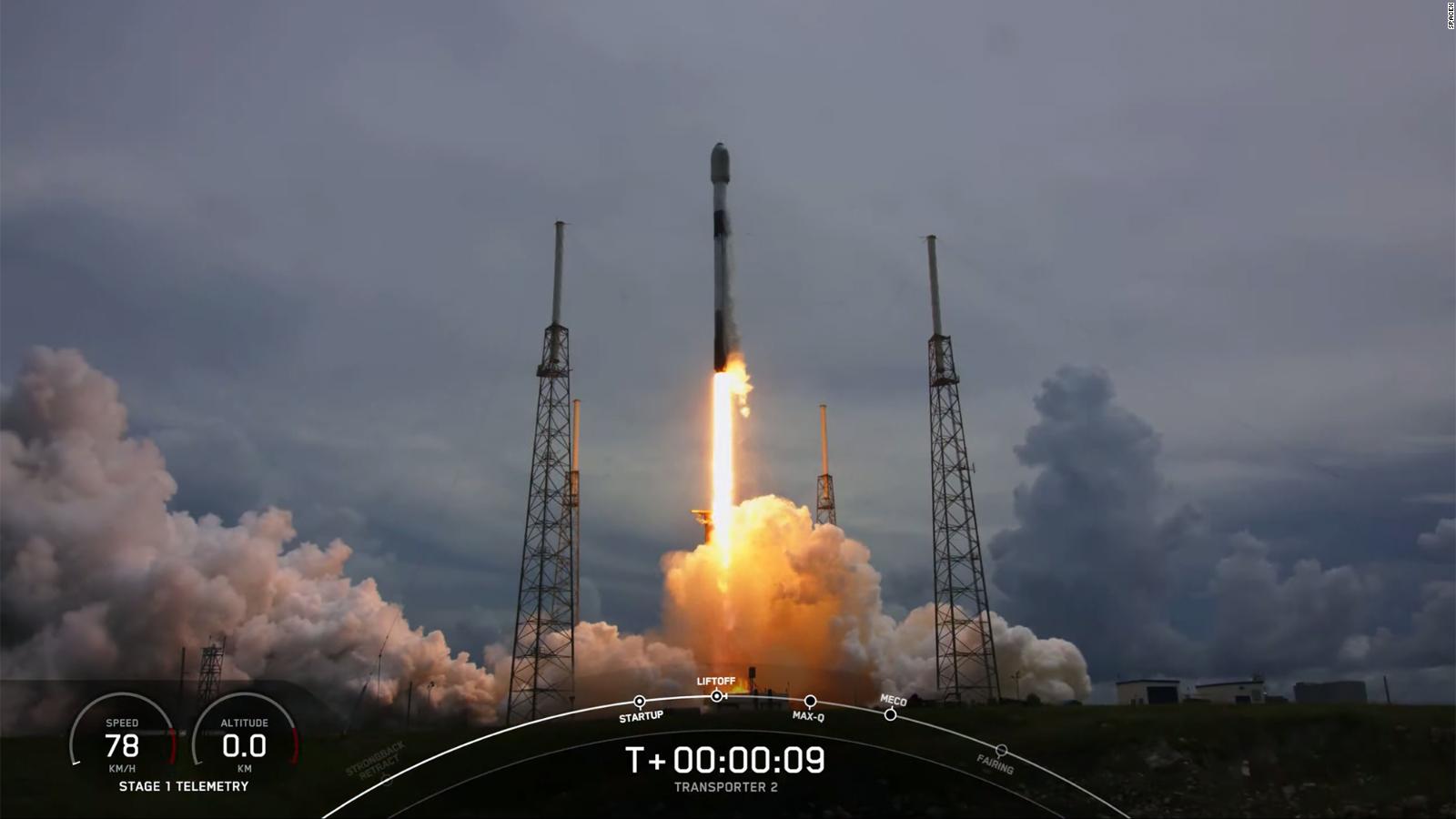The rocket took off from Florida's Cape Canaveral Space Force Station at 3:31 pm ET and flew southward along the east coast as it hurtled toward space. The satellites it delivered to orbit were from a range of government and commercial customers — including NASA and radar satellite company ICEYE — as well as three satellites for SpaceX's Starlink internet constellation.
After takeoff, the Falcon 9's first-stage rocket booster — the large lower portion that houses the engines that give the rocket its initial thrust at liftoff — came back to land upright on a ground pad so that it can be refurbished and used again on future missions. The cost savings SpaceX says it nets by re-using spaceflight hardware is considered key to making spaceflight cheaper.
The booster used Wednesday was previously used on seven other launches, and each half of the rocket's fairing — the dome-shaped cap atop the rocket that protects the satellites during launch — were also used on previous missions.
SpaceX is well known for carrying satellites, cargo and — more recently — astronauts into orbit atop its Falcon 9 rockets, but the company earlier this year began its foray into carrying rideshare launches for numerous customers, in which the rocket's cargo bay is stuffed with batches of small satellites that belong to a variety of SpaceX customers.
The rideshare missions serve as a way for SpaceX tap into the booming demand for getting small satellites, or smallsats, into orbit.
Smallsats have seen a meteoric rise in popularity over the past few years. They range in size from as small as a smartphone to as large as a kitchen refrigerator. And as they've grown more advanced, hoards of businesses have entered the market promising to deliver services using new smallsat technologies.
Typically, smallsats reach orbit by tagging along with larger, more expensive satellites, and the waiting list can be long and unpredictable. But there's been a major push in the launch industry to cater directly to the booming smallsat market. Dozens of new rocket companies are promising to build scaled-down rockets that can provide quick and easy launches for smallsats. Two such companies, Rocket Lab and Virgin Orbit, have successfully sent their downsized rockets to orbit and begun commercial operations.
Virgin Orbit's second orbital launch took off Wednesday morning, just hours before SpaceX's rideshare mission launched.
SpaceX's Falcon 9 rockets are much larger than Rocket Lab and Virgin Orbit's rockets, and they're typically used to launch hefty communications or spy satellites or Dragon spacecraft, which ferry astronauts and cargo to and from the International Space Station.
Deciding to dedicate additional missions just to launching batches of smallsats is a company first, and it's a sign of how much interest in the industry has grown.
As the number of devices in orbit grows, however, experts are becoming increasingly concerned about congestion. Satellites have collided in orbit before, and though such incidents don't post much of a threat to people on the ground, the debris from the crash can stay in orbit for years or decades.
https://ift.tt/3y4rfhg
Science

No comments:
Post a Comment